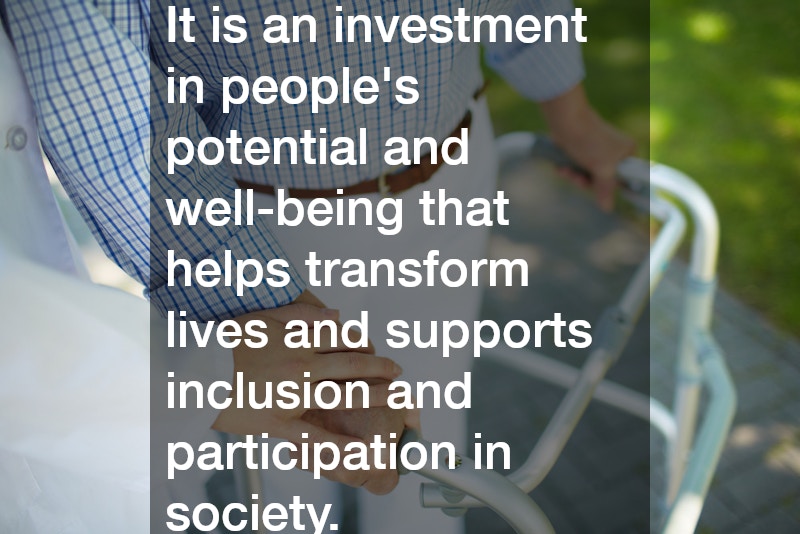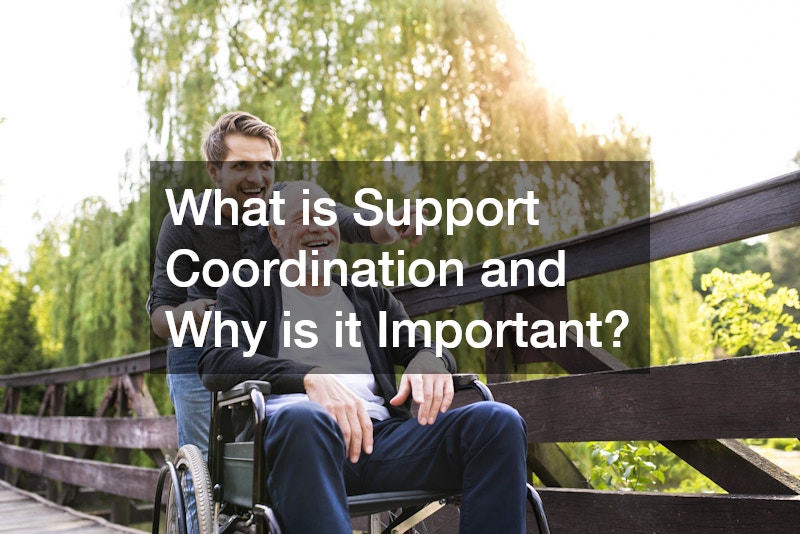Support coordination is an essential service designed to help people with disability, their families, and carers navigate the often complex world of support services. It bridges the gap between individuals’ goals and the various supports available, ensuring they can access the right assistance at the right time.
While it may seem straightforward, the benefits of effective support coordination are profound, particularly in enabling people with disability to live more independent, fulfilling lives.
At its core, support coordination involves guiding and assisting participants to understand and utilise their support plans. These plans may be funded through programs such as the National Disability Insurance Scheme (NDIS) in Australia. A support coordinator’s role is not just to provide information but to actively help participants connect with service providers, community activities, and other opportunities tailored to their needs and aspirations.
How Support Coordination Empowers Participants
Understanding what support coordination entails is important because it goes beyond simply managing appointments or arranging services. It empowers people with disability to take control of their lives, make informed decisions, and build their capacity to manage supports independently in the long term. For many, this personalised approach means the difference between struggling to access supports and thriving with them.
One of the key aspects of support coordination is the personalised attention given to each participant. Every individual’s goals, preferences, and circumstances are unique, which means a one-size-fits-all approach does not work. A support coordinator invests time to build a strong relationship with the participant, listening carefully and ensuring that the supports chosen align closely with what the person wants to achieve. Whether it’s assistance with daily living, education, employment, or social participation, support coordination helps ensure these elements fit together smoothly.
Overcoming Barriers & Building Capacity
Another critical function of support coordination is helping to overcome barriers. Navigating the disability support system can be overwhelming due to its complexity and the range of service providers involved. For participants and their families, this complexity can be daunting and sometimes discouraging. A support coordinator acts as a knowledgeable guide who can identify obstacles and find practical solutions. This might include resolving issues with service providers, advocating on behalf of the participant, or helping to adjust plans when needs change.
Support coordination also plays an important role in building participants’ skills and confidence. While initially a coordinator may take a hands-on approach, one of the goals is to empower participants to manage their own supports as much as possible. This capacity-building ensures that individuals are not reliant on external help indefinitely but instead develop the skills needed to navigate services independently. Over time, this can foster a greater sense of autonomy and control over one’s life.
Why Support Coordination is Important
The importance of support coordination becomes even clearer when considering the outcomes it helps achieve. Participants who have access to effective support coordination are more likely to experience improved quality of life, increased community participation, and better access to services that meet their needs. It helps people move from a position of vulnerability to one of greater choice and control.
In addition, support coordination is vital in preventing people from falling through the cracks. Without guidance, individuals may miss out on essential supports or receive services that do not fully meet their goals. This can lead to frustration, unmet needs, and wasted resources. A support coordinator helps to streamline access and maximise the benefits of available funding, ensuring supports are used efficiently and effectively.
Families and carers also benefit greatly from support coordination. Caring for a person with disability can be complex and demanding, and often families are unsure where to turn for help or what supports are available. Support coordination provides reassurance by offering expert guidance and ongoing support. This not only eases the pressure on families but also helps to build a stronger support network around the participant.
A Dynamic & Flexible Service
Importantly, support coordination is a dynamic and flexible service. As a participant’s needs evolve over time, the coordinator reviews and adjusts plans accordingly. This flexibility means that support remains relevant and effective, avoiding a stagnant or outdated approach. Regular communication between the participant, their family, and service providers ensures that the support remains person-centred and responsive.
The demand for support coordination continues to grow, reflecting its value in the disability sector. As more people access funding through schemes like the NDIS, the role of the support coordinator becomes even more crucial. It is a role that requires strong interpersonal skills, deep knowledge of the disability sector, and a commitment to advocacy and empowerment.
In summary, support coordination is a vital component of the disability support system that offers much more than just logistical assistance. It provides participants with personalised guidance, helps to overcome barriers, and builds capacity for independent living. Through effective support coordination, people with disability can access services that truly meet their needs, improve their quality of life, and exercise greater choice and control.
By understanding the importance of support coordination, participants, families, and communities can better appreciate the value of this service. It is an investment in people’s potential and well-being that helps transform lives and supports inclusion and participation in society.




